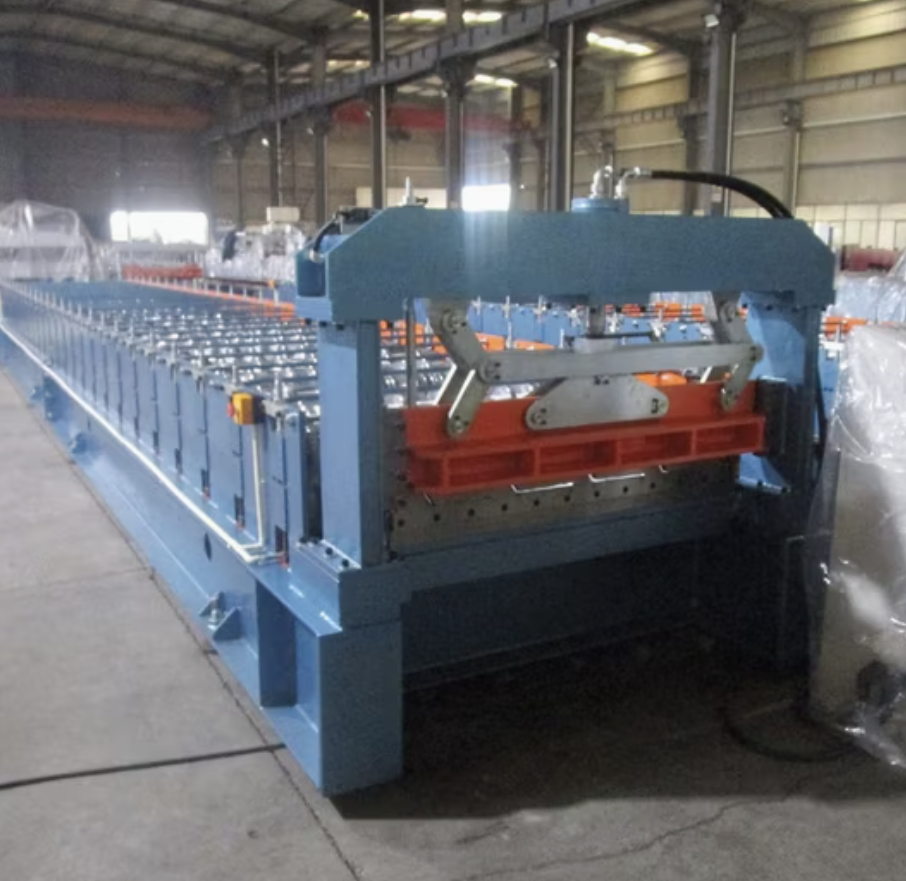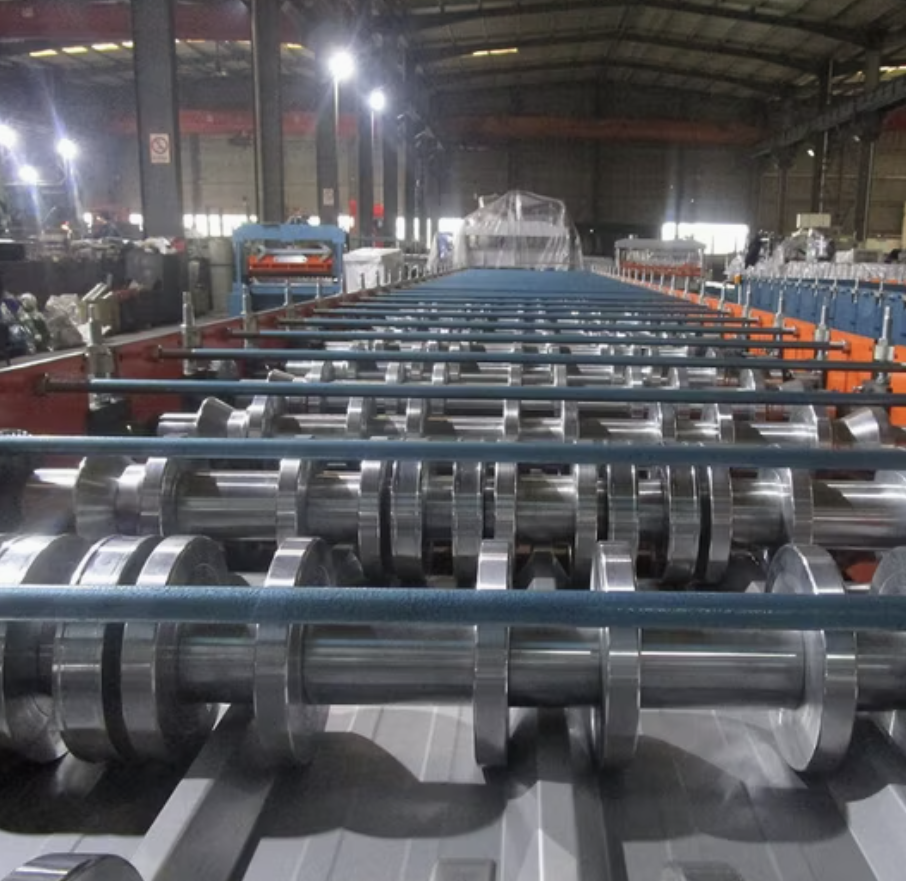To express an interest in this machine please submit the form below.

Not Sure What Machine You Need?
Select Your Profile, We'll Match It
Choose your desired profile drawing, and let Machine Matcher connect you with the best roll forming machine tailored to your needs.
Browse Profiles


A roof panel roll forming machine is an industrial-grade equipment designed to manufacture roofing panels efficiently and accurately. These machines convert coiled sheet metal into high-quality roof panels with consistent dimensions and profiles. Roof panels produced by roll forming machines are widely used in residential, commercial, and industrial construction for their durability, weather resistance, and aesthetic appeal.
Roof panel roll forming machines are highly customizable, capable of producing various profiles such as trapezoidal, corrugated, or standing seam, depending on the requirements. They are equipped with advanced technology for precision, speed, and user-friendly operation.
Q1. What types of roof panels can this machine produce?
A: This machine can produce various profiles, including trapezoidal, corrugated, and standing seam panels. Custom dies and rollers can be designed to meet specific profile requirements.
Q2. Can the machine handle different material thicknesses?
A: Yes, the machine is designed to handle a range of material thicknesses, typically between 0.3mm and 0.8mm. It can be customized for thicker or thinner materials upon request.
Q3. How much space is required to install the machine?
A: The machine's footprint varies, but a standard roof panel roll forming machine requires approximately 15m x 2m x 1.5m (length x width x height). Additional space is needed for material handling and operator movement.
Q4. What is the average lead time for manufacturing the machine?
A: The lead time varies depending on the complexity and customization but typically ranges from 30 to 60 days.
Q5. How can I ensure consistent production quality?
A: Regular maintenance, proper calibration, and using high-quality raw materials are essential for consistent production quality. Many machines also come with automated quality checks.
Q6. Is training required to operate the machine?
A: While the machine is user-friendly, basic training is recommended for operators to understand its functionality, troubleshooting, and maintenance.
Q7. What is included in the machine warranty?
A: Most manufacturers offer a one-year warranty covering parts and service, excluding consumables. Extended warranties can be negotiated.
Q8. Can the machine be integrated into an automated production line?
A: Yes, roof panel roll forming machines can be integrated with automated systems, including stacking, packaging, and material handling equipment.
Q9. What maintenance is required for the machine?
A: Regular lubrication of moving parts, cleaning of rollers, and periodic inspections of the hydraulic and electrical systems are recommended for optimal performance.
Q10. Are replacement parts readily available?
A: Manufacturers usually provide a list of spare parts and can supply replacements quickly. It's advisable to keep essential parts, like blades and rollers, in stock.
Copyright 2026 © Machine Matcher.